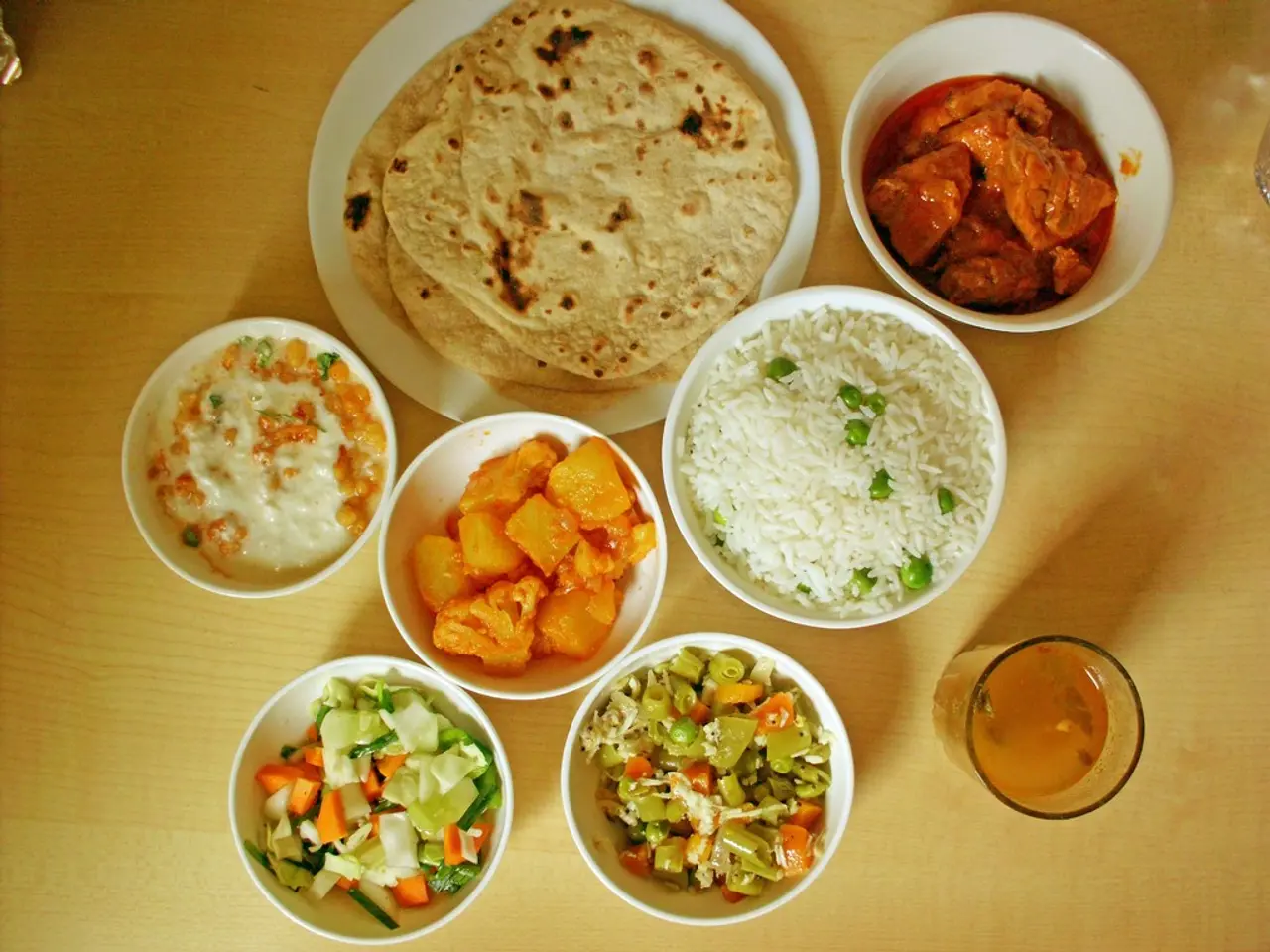Indiahikes' novel venture introduces traditional dishes to a broad audience
In the heart of India, a significant change is taking place on trekking trails in Himachal Pradesh and Uttarakhand. The Green Dhabas initiative, launched by Indiahikes in early 2025, is making a positive impact by reducing plastic pollution and promoting local cuisine among trekkers and local vendors, known as dhabawalas[1][3].
The initiative, part of Indiahikes' broader Green Trails project, aims to reduce plastic pollution on trails by discouraging packaged food and encouraging waste segregation among local vendors[3]. The response from the dhabawalas has been positive, with many refusing to serve packaged food to Indiahikes trekkers, aligning with the initiative's guidelines[1].
Beyond environmental benefits, the Green Dhabas initiative is also enriching the trekker experience by promoting local cuisine and culture. Trekkers appreciate the opportunity to experience authentic local food, such as Himachali dishes like siddu, during their treks[1]. In Buran Ghati, for instance, the dhabawala provided local dresses for trekkers to wear and take photos, adding a cultural touch to the experience[1].
The initiative extends beyond the trails, reaching into local communities such as schools, fostering environmental awareness and stewardship in the region[3].
The Green Dhabas initiative has received positive feedback from both vendors and trekkers, and Indiahikes hopes to expand the participation of dhabawalas and gain support from forest authorities to broaden the program’s reach[1][3].
Jyotsna Mahato, an advocate at the Jharkhand High Court and a hiker, recently completed the Sar Pass Trek in Himachal Pradesh in June 2025. She supports the Green Dhabas initiative, preferring local Himachali food over packaged food during her treks[1].
Eight dhabas in these two states have signed up to the project, which is certified into three levels. Level 1 involves handling waste generated in the dhaba, Level 2 focuses on reducing waste by encouraging vendors to serve local food for Indiahikes trekkers, and Level 3 phases out packaged food completely[1].
Trekkers are encouraged to reduce bottled water waste, carry their own waste, and avoid single-use cutlery during treks. Each trekker is given a bag to manage their own litter[1].
The Green Dhabas initiative is a significant step towards preserving nature and enhancing the trekking experience. With its promising outcomes, it offers a model for sustainable tourism that respects and promotes local culture.
References:
[1] Indiahikes. (2025). Green Dhabas Initiative: Making a Difference on Trekking Trails. Retrieved from https://www.indiahikes.com/blog/green-dhabas-initiative-making-a-difference-on-trekking-trails
[3] Indiahikes. (2025). Green Trails: Sustainability, Empathy, and Transformation. Retrieved from https://www.indiahikes.com/blog/green-trails-sustainability-empathy-and-transformation
- The Green Dhabas initiative, a part of Indiahikes' Green Trails project, not only reduces plastic pollution on trekking trails but also promotes local cuisine, contributing to environmental-science and lifestyle changes within the trekking community and among local vendors, or dhabawalas.
- As the Green Dhabas initiative extends beyond the trails, it influences local communities, fostering environmental awareness and stewardship, particularly in schools, aligning with the principles of science and sustainability.
- Travelers who embark on treks in Himachal Pradesh and Uttarakhand can expect an enriched experience, as they savor local food and culture through the Green Dhabas initiative, embracing a model for sustainable tourism that respects and promotes local heritage, thereby merging food-and-drink, travel, and environmental-science.




